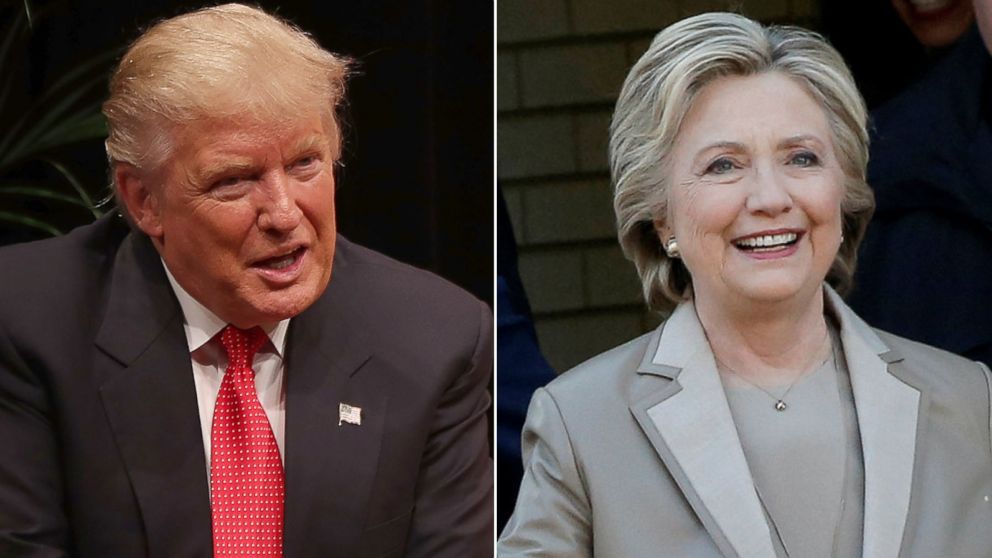OPINION: 5 Myths of the 2016 Presidential Campaign
Some myths can be useful, but others can lead us astray.

— -- There is profound truth in many myths that help guide us on our life's journey and our country's journey towards purpose, values and meaning. The works of our great religions from the Old Testament to the Gospels to the Koran to the Bhagavad Gita provide myths to lead us towards some fundamental truths.
Joseph Campbell, the renowned author and thinker, wrote and spoke of this often including his seminal work "The Power of Myth." Many myths give us signals and take us towards some ultimate truths, but there are many myths in politics that actually take us further away from the truth.
Many times over the last 10 years I have spoken about myths in politics and how buying into them can misinform us and lead us astray. I have talked about the fact political ads in presidential races are very ineffective and wasteful, and that proved out once again this year. I have written on the idea that field organizations are given way to much credit in moving voters and that enthusiasm is actually a better indicator than phone calls or offices of how turnout will be. Also, too often we have overly discussed tactics and not spent enough time on the political environment which is crucial in any election.
This presidential campaign is like others where myths have already arisen and been repeated by the media, pundits, and operatives of both campaigns, and if these myths are believed it will misinform a whole body of folks going into the next campaigns. Let us look at five of the current developing political myths and try to get at the truth.
1. Today, there seems to be a building myth that Donald Trump won this election based solely on his message, his candidacy, his campaign's strategy. Let's take a look at what mattered most to his victory. In rank order, the greatest determinant of the election result was as follows: a. Hillary Clinton. b. Wikileaks revelations/FBI Director Comey announcement/Obamacare premiums. c. Overall Political environment. d. Trump and his message. e. Campaign strategy. It is clear that most Trump voters on election day did not cast votes for Trump but against Clinton, and the flawed nature of her candidacy undermined her throughout the election. Further, the late revelations had an impact on polling as each campaign has admitted. The overall environment was one of change, and the Republicans represented this, while Clinton was the embodiment of the status quo.
2. A myth has developed that the polls were totally off and should be ignored in the future. The average of the national polls before Election Day had Clinton beating Trump by 3 points. The general election returns currently show Clinton ahead by 2 points. The national polls were actually more accurate this year than in 2012, when the average showed President Obama winning by 1 point and he ended up winning by 4 points. The truth is some of the key state polls were off and the credibility of those particular polls should be questioned and examined. My advice for the national media is to invest less in national polls and more in state polling operations so the science of surveying is protected. Let's not fall into the trap of thinking anecdotes are a good path to the truth. Anecdotes can reveal certain things, but they can't tell us what a large body of voters are doing.
3. Certain people in the media think leaders need to be more like Trump in attitude, tone, and language. This is a big myth. Most Trump voters cast ballots for him in spite of his manner and words, rather than because of it. Nearly a quarter of trump voters on Election Day said he didn't have temperament needed to be president, but they voted for him anyway because they didn't want Clinton. I believe the vast majority of Americans still want humble servant leaders who respect others and who are dignified in manner. Given the choice voters had this year, they reluctantly chose between two awful choices.
4. The continued repeating of the myth that voters don't want independent candidates is both flawed and troubling. Pundits use Gary Johnson as evidence of this myth and the failure of his campaign. Johnson both had a flawed brand of a party and a flawed candidacy. On Election Day, both the two major candidates and the two legacy parties were disliked and distrusted by a majority of voters. And the number of voters registered as independents is at an all-time high. In addition, a big failure of independent candidacies is that they try to move voters top down. Independents will rise locally and at the state level first, and then that will build down the road to a national candidacy. And 2018 will be the beginning of the revenge of independent candidates on our broken party system.
5. The truth doesn't matter in politics anymore is another unfortunate myth arising after Election Day. Because Trump won and was the least truthful candidate to run for national office in the last century, pundits think this means facts don't matter anymore. In fact, representatives of the Trump campaign have been saying just that. There has arisen a problematic situation in politics and news where there doesn't seem to be a common set of facts, and this will make it hard to come together in consensus on the common good. The majority of America still hold integrity and honesty as a high value and want that in our leaders, they just didn't feel like either major party candidate represented that. Many decided, especially in key states, to vote for the untrustworthy outsider vs. the untrustworthy insider. Given a choice of a strong authentic leader who has integrity, the majority would pick that every time.
Myths can be helpful in many walks of life and in our journey of heart and soul, but beware of political myths and especially the ones repeated with little regard for what the truth is.
Matthew Dowd is an ABC News analyst and special correspondent. Opinions expressed in this column do not necessarily reflect the views of ABC News.




